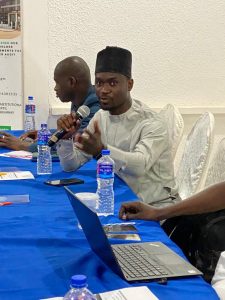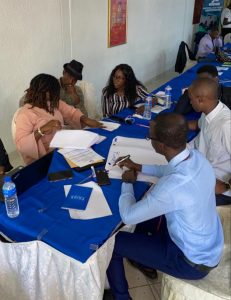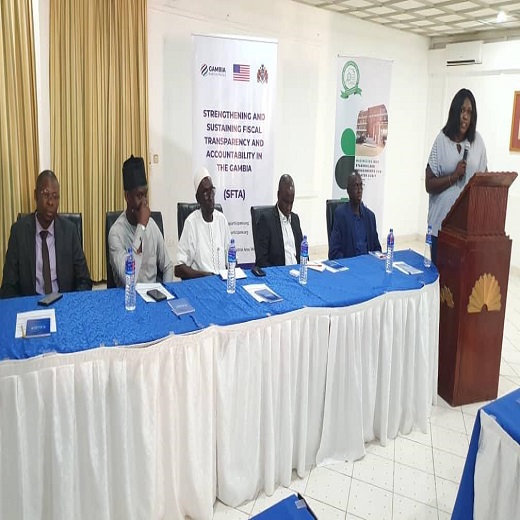NAO Engages with Gambia Civil Society to Strengthen Collaboration
NAO Engages with Gambia Civil Society to Strengthen Collaboration
On May 30th, 2023, with the support of Gambia Participates through its project on Fiscal Transparency and Accountability funded by the US Embassy Banjul, the National Audit Office held a one-day engagement with prominent CSOs to discuss how supreme audit institutions (SAIs) are collaborating with civil society for greater audit impact. The key objective of the event was for the identification and mapping of Gambia CSOs that are advocating for the promotion of accountability and citizen participation in public finance management, to serve as the champions in increasing citizen understanding of the audit reports, the work of the NAO as well as public finance in general.
National Audit Office held a one-day engagement with prominent CSOs to discuss how supreme audit institutions (SAIs) are collaborating with civil society for greater audit impact. The key objective of the event was for the identification and mapping of Gambia CSOs that are advocating for the promotion of accountability and citizen participation in public finance management, to serve as the champions in increasing citizen understanding of the audit reports, the work of the NAO as well as public finance in general.
The event attracted diverse civil society practitioners who interacted with the NAO team led by the deputy auditor general one (DAG 1) who deputized for the auditor general. In his welcoming and opening remarks, Pa Majagne Ndow (DAG 1) shared “SAIs around the world as well as within the sub-region are increasing their collaboration with civil society because we all know the important role of civil society in advocating for accountability and good governance – we are therefore hopeful that through the collaboration we seek to strengthen between Gambian CSOs and the NAO, that the Gambia will also be cited as a reference on SAIs who have engaged with CSOs that have yielded desired results”.
The NAO team took participants through some PowerPoint presentations on the mandate of the NAO, an overview of the NAO’s SDP 2020-2024 including the four strategic priorities, an overview of how SAIs are collaborating, and a summary of why the NAO felt the need to identity and map CSOs to increase collaboration. Participants also worked in groups to conduct the mapping exercise as well as give feedback on the NAO’s website and other simplified products as well as recommendations on how civil society can better coordinate amongst themselves and how the NAO can help in increasing understanding of the audit reports and the work of the NAO as a whole.
simplified products as well as recommendations on how civil society can better coordinate amongst themselves and how the NAO can help in increasing understanding of the audit reports and the work of the NAO as a whole.
The discussions brought out a series of challenges faced by civil society resulting in limited interaction and engagement with the NAO and the audit reports. Some of the challenges shared include:
Insufficient understanding of the work of the NAO/AG – which on one part is due to lack of capacity and interest on the part of some civil society practitioners; insufficient understanding of the content/ implications of the audit reports findings, late access to the audit reports as a result of the delay in the publication of the audit reports; lack of coordination by CSOs on how to actively engage on the audit reports, etc.
insufficient understanding of the content/ implications of the audit reports findings, late access to the audit reports as a result of the delay in the publication of the audit reports; lack of coordination by CSOs on how to actively engage on the audit reports, etc.
Participants applauded the NAO for the initiative to engage with civil society and recommended a framework that will facilitate the collaboration. Continuous interaction and access to NAO products were also highlighted as well as the need for Gambia Participates to use its status to mobilize CSOs to form a working group that will initiate and coordinate activities with public institutions in the PFM accountability cycle to increase their understanding of the mandate and work of the respective institutions and further disseminate the information to the general citizens for greater public awareness.

